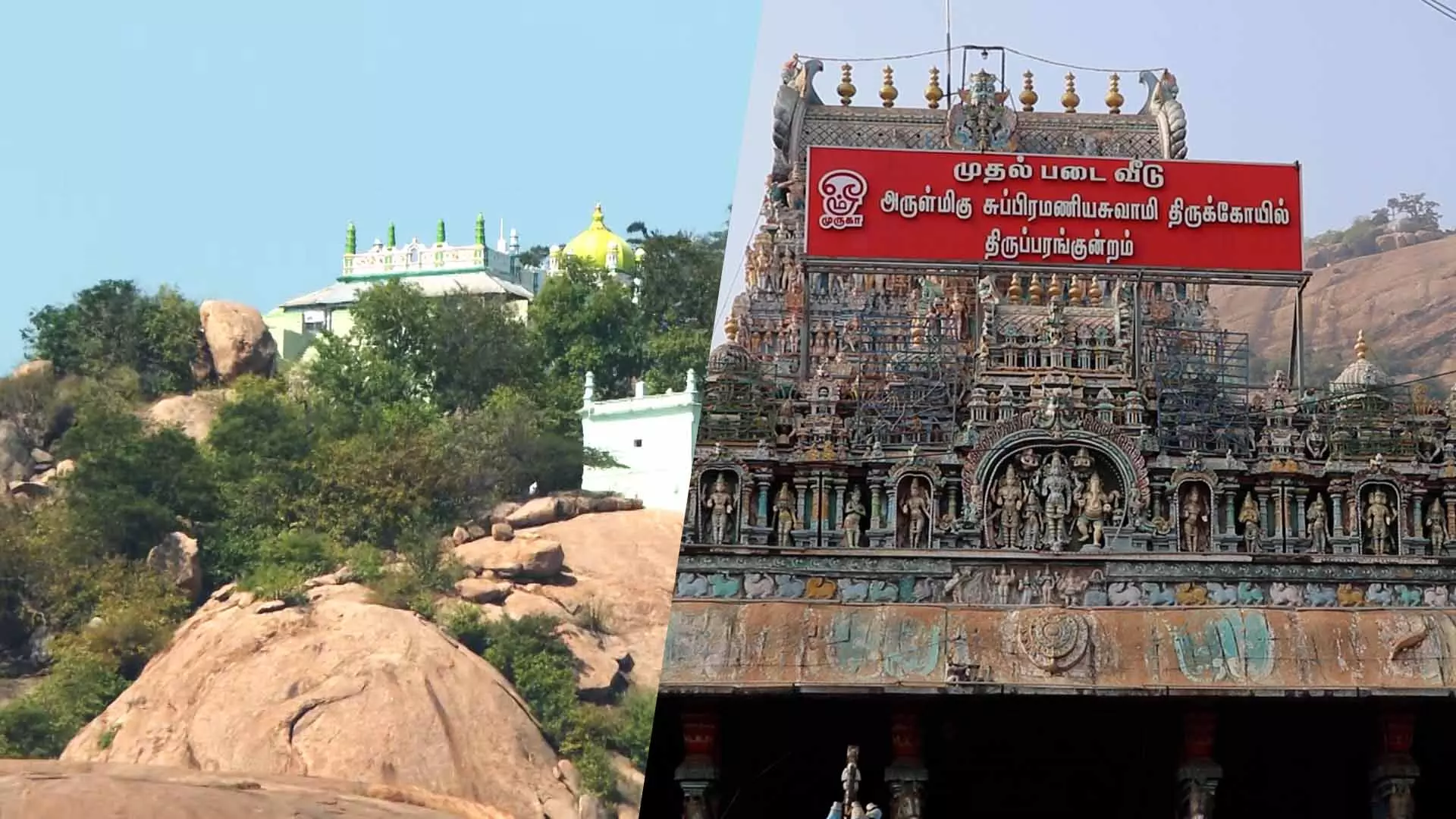
The sacred hill of Madurai: Two faiths and one dispute
Thiruparankundram Hill of many faiths is now a legal battlefield. Here’s why the name ‘Sikkandar Malai’ is in dispute.

Thiruparankundram Hill in Madurai—home to an eighth-century Murugan temple, third–fourth century BCE Jain caves, a seventh-century Kasi Viswanathar shrine, and a 14th-century Sikandar Badusha Dargah—is now the subject of a heated legal battle over its name and religious rites. The Madras High Court has delivered a split verdict, sending the case to a third judge for a decisive resolution.
Justice J Nisha Banu upheld the tradition of animal sacrifice at the dargah, citing the absence of any legal prohibition after the repeal of the Tamil Nadu Animals and Birds Sacrifices Prohibition Act, 1950, in 2004. She noted the practice spans both Muslim and Hindu traditions in the region, and that the dargah and temple occupy distinct zones with no overlap.
Justice S Srimathy dissented, arguing there is no evidence that animal sacrifice is an age-old custom at the dargah and warned that pamphlets promoting it are provocative and risk communal disharmony. She also ordered that the dargah must approach a civil court to prove ritual practices before 1920 and mandated the hill retain only its historic name - no “Sikkandar Malai” or “Samanar Kundru.”
History and Identity
The hill's significance stems from centuries of shared religious heritage. Known as Skandamalai to Hindus (denoting Murugan’s abode), it also houses the grave of Sikandar Shah—the last Sultan of the Madurai Sultanate—leading to the dargah atop the hill being referred to by locals as Sikkandar Malai.
Communities celebrated shared rituals: Hindus took part in the annual Santhanakoodu festival and Vel Yatra, while Muslims offered prayers at the Dargah, symbolising interfaith unity. Yet recent fake narratives—circulating via WhatsApp—claimed plans to rename the hill and host meat feasts onsite, stirring tensions.
What’s next
The Chief Justice of the Madras High Court will now appoint a third judge to adjudicate this sensitive dispute, which centers on ritual practices, heritage names, and communal coexistence on the sacred hill.
The content above has been generated using a fine-tuned AI model. To ensure accuracy, quality, and editorial integrity, we employ a Human-In-The-Loop (HITL) process. While AI assists in creating the initial draft, our experienced editorial team carefully reviews, edits, and refines the content before publication. At The Federal, we combine the efficiency of AI with the expertise of human editors to deliver reliable and insightful journalism.

